
The Tranquil Beauty of Vatican Gardens
The Vatican Gardens in Vatican City offer a serene escape from the bustling streets of Rome. Spanning nearly half of the Vatican City's territory, these gardens are a green oasis filled with historical and artistic treasures. Walking through the gardens, you will encounter manicured lawns, colorful flowerbeds, and ancient statues that tell the story of centuries past. The gardens are a place of quiet reflection, where you can stroll along tree-lined paths and enjoy the peaceful ambiance. The lush greenery and fountains create a perfect backdrop for relaxation and contemplation. The gardens also provide a unique perspective of St. Peter's Basilica and other Vatican landmarks, offering unparalleled views that are a feast for the eyes. Visitors to the Vatican Gardens can take guided tours to learn about the rich history and significance of this sacred space. The tours provide insights into the various plants, sculptures, and buildings that make up the gardens. Whether you're a history buff, a nature lover, or simply looking for a peaceful retreat, the Vatican Gardens offer an unforgettable experience.
Local tips in Vatican Gardens
- Book your guided tour in advance as access to the gardens is restricted and spots fill up quickly.
- Wear comfortable shoes, as the garden paths can be long and involve some walking.
- Visit early in the morning or late in the afternoon to avoid the midday heat and enjoy a more pleasant experience.
- Don't forget your camera; the gardens offer stunning photo opportunities, especially with the backdrop of St. Peter's Basilica.
- Check the weather forecast and bring an umbrella or a hat, as the gardens are mostly outdoors.
The Tranquil Beauty of Vatican Gardens
The Vatican Gardens in Vatican City offer a serene escape from the bustling streets of Rome. Spanning nearly half of the Vatican City's territory, these gardens are a green oasis filled with historical and artistic treasures. Walking through the gardens, you will encounter manicured lawns, colorful flowerbeds, and ancient statues that tell the story of centuries past. The gardens are a place of quiet reflection, where you can stroll along tree-lined paths and enjoy the peaceful ambiance. The lush greenery and fountains create a perfect backdrop for relaxation and contemplation. The gardens also provide a unique perspective of St. Peter's Basilica and other Vatican landmarks, offering unparalleled views that are a feast for the eyes. Visitors to the Vatican Gardens can take guided tours to learn about the rich history and significance of this sacred space. The tours provide insights into the various plants, sculptures, and buildings that make up the gardens. Whether you're a history buff, a nature lover, or simply looking for a peaceful retreat, the Vatican Gardens offer an unforgettable experience.
When is the best time to go to Vatican Gardens?
Iconic landmarks you can’t miss
Vatican Museums
Discover the artistic treasures of the Vatican Museums, where centuries of history and masterpieces await in the heart of Vatican City.
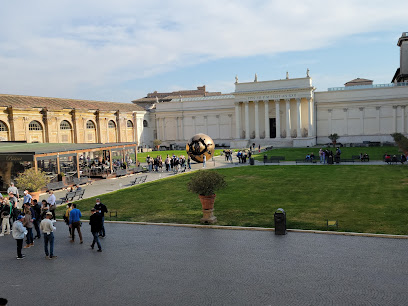
St. Peter's Basilica
Discover the magnificent St. Peter's Basilica, an architectural marvel and a spiritual haven in the heart of Vatican City.
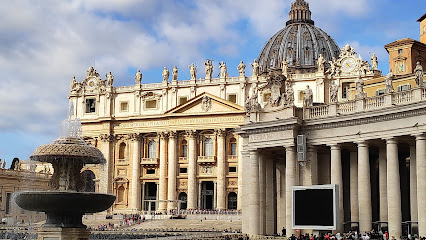
Sistine Chapel
Explore the Sistine Chapel, a pinnacle of Renaissance art and a sacred site within Vatican City, home to Michelangelo's breathtaking masterpieces.
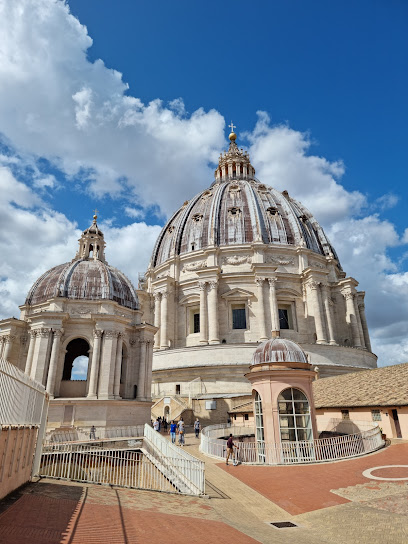
Saint Peter's Square
Explore the breathtaking Saint Peter's Square, a historical masterpiece and spiritual epicenter of Vatican City, surrounded by stunning architecture and rich history.
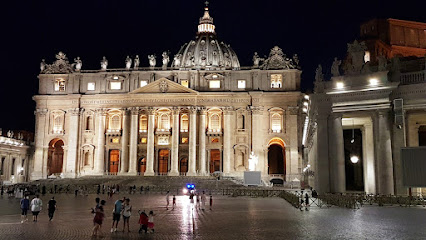
St. Peter Square Obelisk
Experience the grandeur of Vatican City at St. Peter's Square Obelisk, a monumental symbol of faith and history in the heart of Rome.
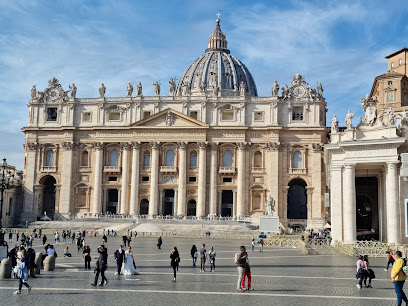
Gardens of Vatican City
Discover the tranquil beauty of the Gardens of Vatican City, a hidden gem for nature lovers and history enthusiasts amidst the iconic Vatican landmarks.
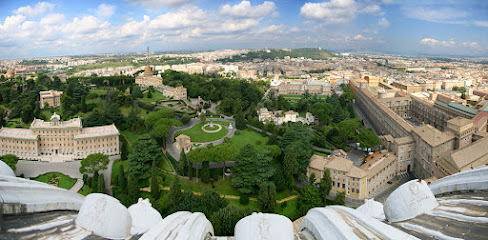
Chiesa di Sant'Anna dei Palafrenieri
Experience spiritual serenity at Chiesa di Sant'Anna dei Palafrenieri, a hidden gem in Vatican City, renowned for its stunning architecture and tranquil atmosphere.
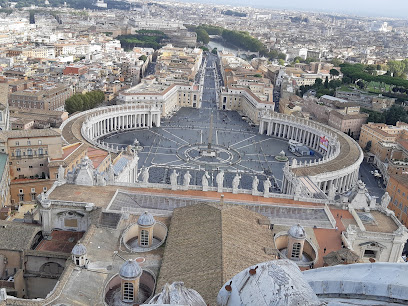
Paul VI Hall
Explore the stunning Paul VI Hall in Vatican City, an architectural masterpiece and vibrant venue for papal audiences and cultural events.
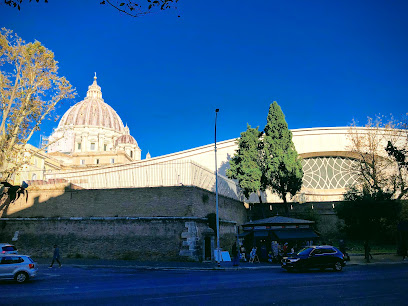
Apostolic Palace
Explore the majestic Apostolic Palace, the official residence of the Pope, and immerse yourself in centuries of art and history in Vatican City.
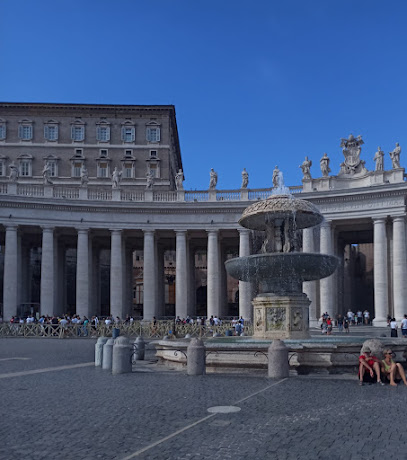
Vatican Necropolis
Discover the Vatican Necropolis, an ancient burial ground beneath St. Peter's Basilica, where history and spirituality intertwine in a remarkable journey.
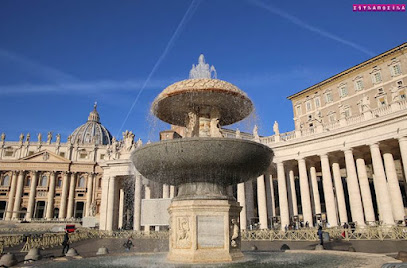
Pine Courtyard
Experience tranquility at the Pine Courtyard in Vatican City, an exquisite garden blending nature and artistry for an unforgettable visit.
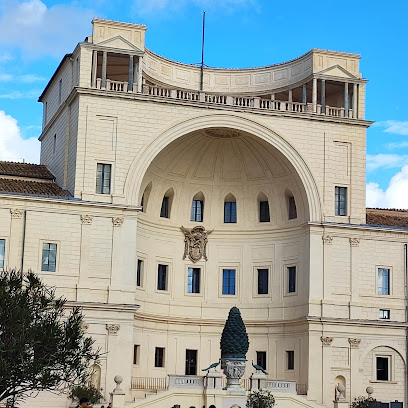
Crown Tours
Experience Rome like never before with Crown Tours, your gateway to the city's rich history and vibrant culture through expertly guided tours.
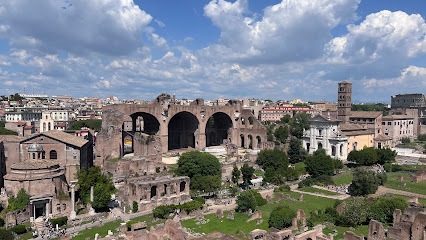
Touristation Vaticano
Explore Vatican City with Touristation Vaticano, your gateway to unforgettable tours of art, history, and spirituality in the heart of Rome.
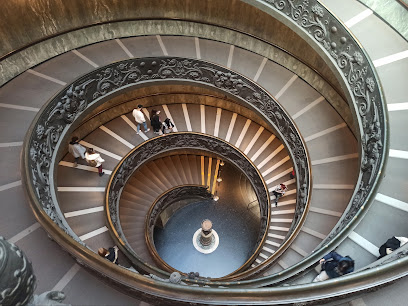
Paintings Gallery of the Vatican Museums
Explore the Vatican Museums' Paintings Gallery, a masterpiece of Renaissance art featuring works by Raphael, Caravaggio, and more.
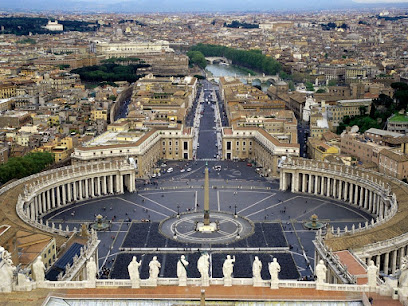
Passeggiata del Gelsomino
Discover the enchanting beauty of Passeggiata del Gelsomino, a tranquil promenade in Rome offering breathtaking views and a peaceful retreat from the city bustle.
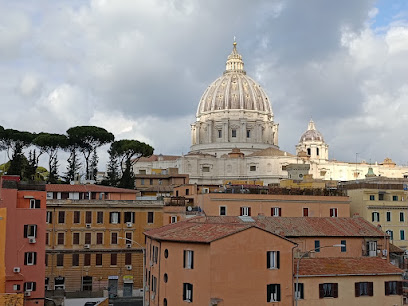
Unmissable attractions to see
Trevi Fountain
Experience the Trevi Fountain, a stunning Baroque masterpiece in Rome, renowned for its beauty and rich history, perfect for unforgettable memories.
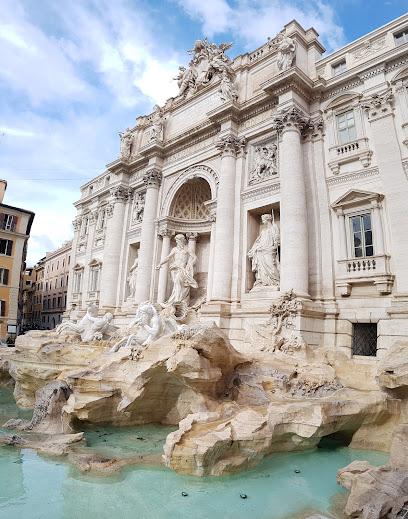
Colosseum
Discover the Colosseum, Rome's iconic historical landmark that reveals the grandeur of ancient civilization and the thrill of gladiatorial contests.
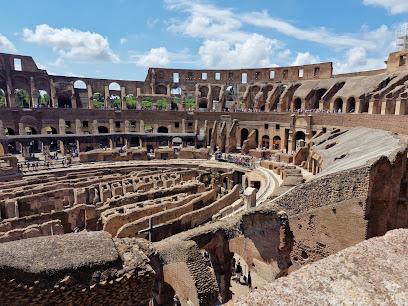
Pantheon
Explore the Pantheon, Rome's architectural wonder, a historical landmark that showcases the brilliance of ancient Roman engineering and artistry.
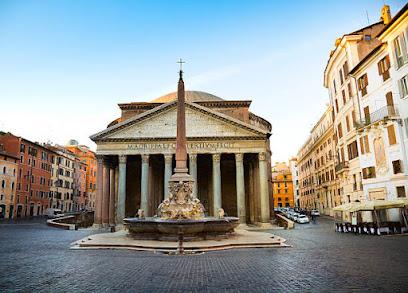
Piazza Navona
Experience the vibrant atmosphere and Baroque beauty of Piazza Navona, Rome's iconic plaza with stunning fountains and rich history.
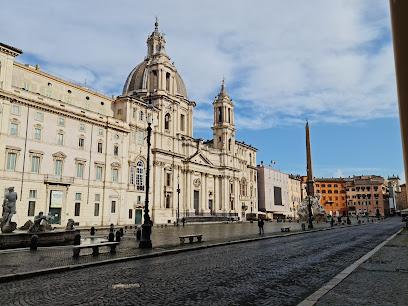
Vatican Museums
Explore the Vatican Museums, a rich tapestry of art and history in Vatican City, featuring masterpieces that inspire and captivate millions of visitors each year.

Roman Forum
Explore the Roman Forum: A captivating open-air museum showcasing the ancient center of Rome's political and social life.
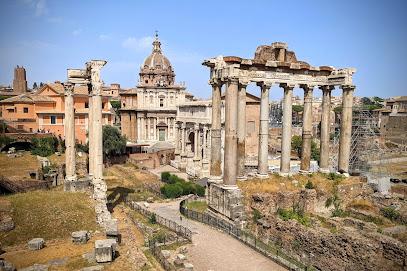
Castel Sant'Angelo
Explore Castel Sant'Angelo, a historic castle in Rome featuring stunning views, rich history, and captivating art, making it a must-visit attraction.
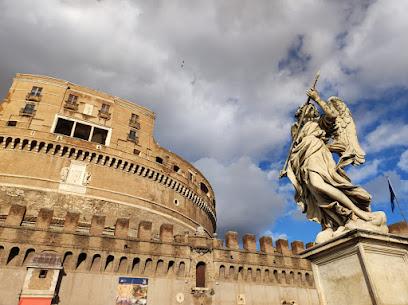
Sistine Chapel
Discover the awe-inspiring beauty and historical significance of the Sistine Chapel, a masterpiece of art and spirituality in Vatican City.
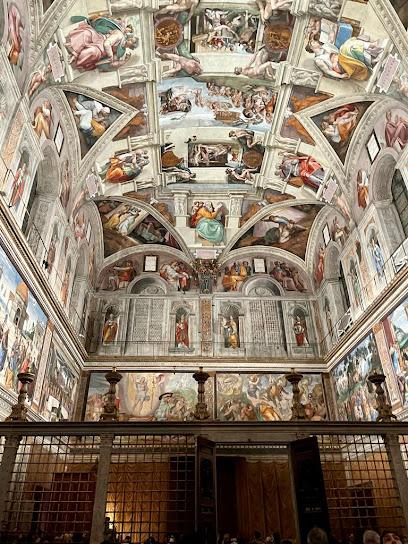
Villa Borghese
Discover the stunning beauty and rich history of Villa Borghese, Rome’s iconic park filled with art, gardens, and tranquility in the heart of the city.
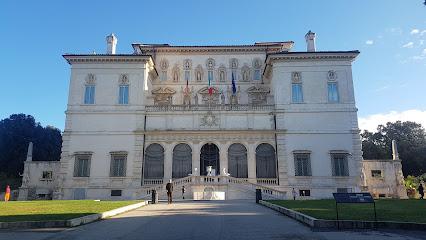
Piazza Venezia
Discover the historical beauty of Piazza Venezia, a central hub in Rome known for its stunning architecture and rich cultural significance.
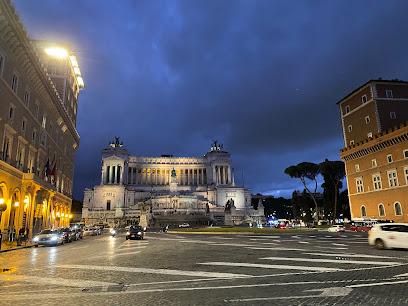
Circus Maximus
Explore Circus Maximus, the largest chariot racing stadium of ancient Rome, and experience the echoes of history in the heart of the Eternal City.
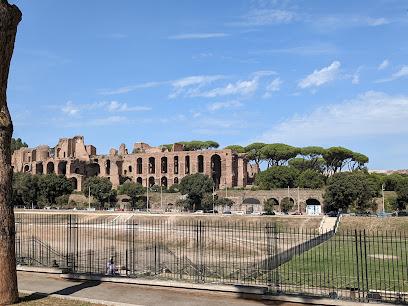
Papal Basilica of Saint Mary Major
Discover the architectural splendor of the Papal Basilica of Saint Mary Major, a must-visit spiritual and historical landmark in Rome.
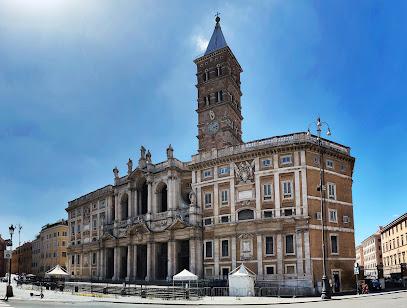
Largo di Torre Argentina
Explore the rich history of Largo di Torre Argentina, an iconic archaeological site in Rome, where ancient ruins meet modern charm.

Villa d'Este
Discover the enchanting beauty of Villa d'Este in Tivoli, a UNESCO World Heritage Site famed for its stunning gardens and Renaissance architecture.
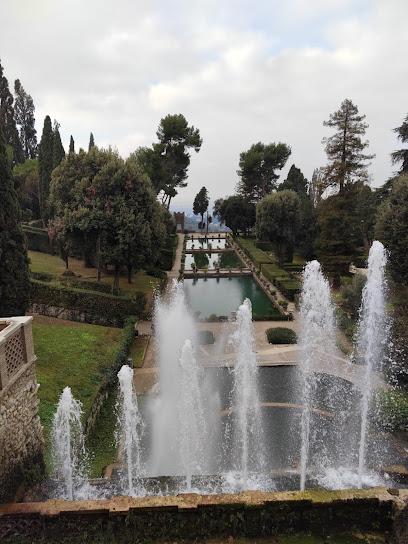
Stadio Olimpico
Experience the passion of Italian sports at Stadio Olimpico, Rome's iconic stadium for football, concerts, and unforgettable events.
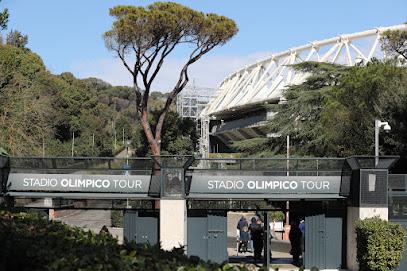
Essential places to dine
Ristorante dei Musei
Experience authentic Italian cuisine at Ristorante dei Musei in Rome, famous for its delicious pizzas and warm hospitality.
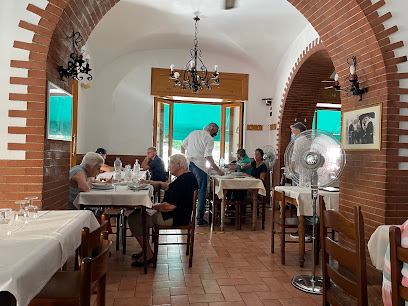
La Soffitta Renovatio
Experience authentic Italian cuisine at La Soffitta Renovatio in Rome - where tradition meets flavor in every dish.
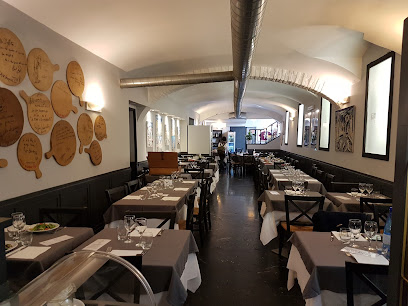
Ristorante Arlù
Experience authentic Italian cuisine at Ristorante Arlù in Rome's charming Borgo Pio district—where tradition meets taste.
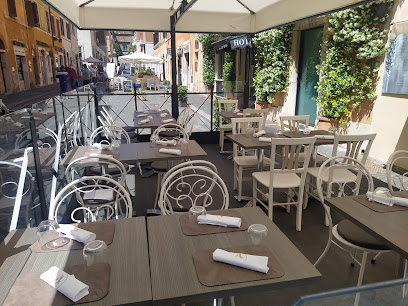
Satiricus Ristorante Pizzeria
Experience authentic Italian cuisine at Satiricus Ristorante Pizzeria – a delightful blend of flavors and hospitality in Rome.
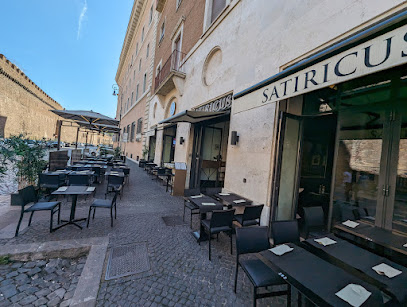
Forno Feliziani
Experience authentic Roman pizza at Forno Feliziani – where tradition meets flavor in every slice.
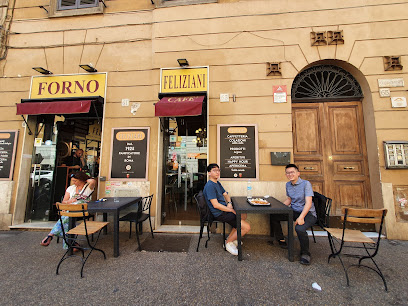
La Locanda di Pietro
Experience authentic Italian dining at La Locanda di Pietro in Rome - where tradition meets flavor in every dish.
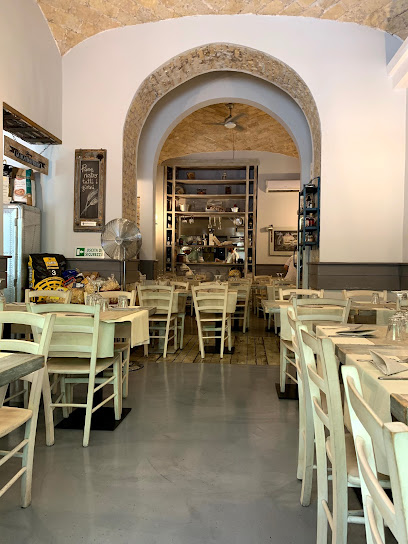
Ristorante Da Paolo
Experience authentic Italian cuisine at Ristorante Da Paolo near the Vatican – where every meal is a celebration of flavor.
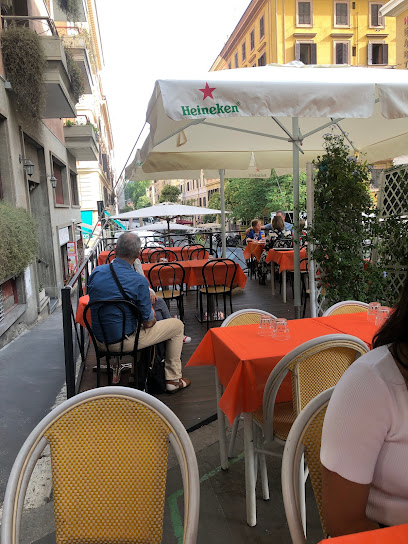
Trattoria Pizzeria Gli Archi
Experience authentic Italian cuisine at Trattoria Pizzeria Gli Archi - where every dish tells a story of tradition and flavor.
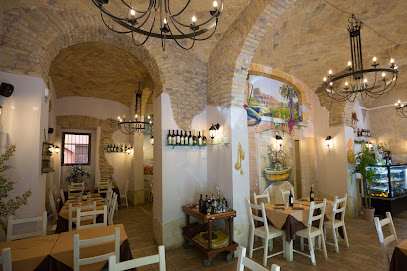
Trattoria Vaticano Giggi
Experience authentic Roman cuisine at Trattoria Vaticano Giggi, where tradition meets flavor in the heart of Rome.
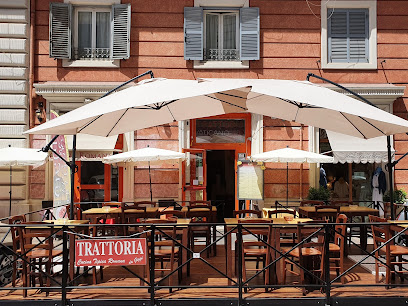
Vinsanto Vino & Cucina
Experience authentic Italian cuisine at Vinsanto Vino & Cucina in Rome – where tradition meets modernity in every delicious dish.
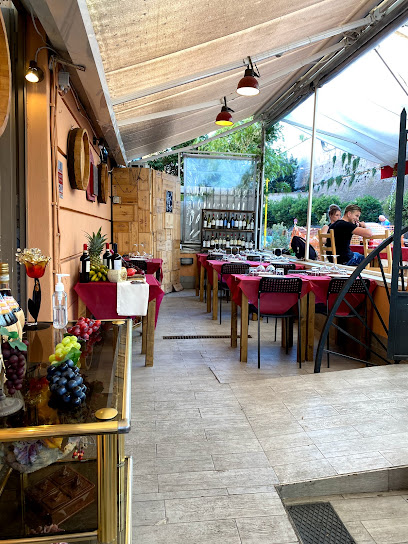
Osteria delle Commari
Discover authentic Italian flavors at Osteria delle Commari in Rome—where gluten-free options meet Mediterranean charm.
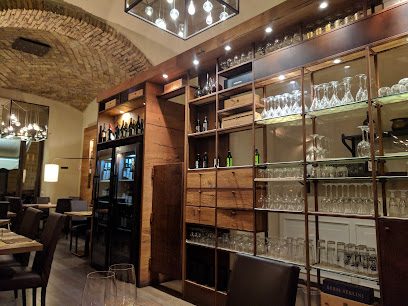
The Loft
Experience authentic Italian cuisine at The Loft, a cozy bistro in Rome offering delicious dishes and an inviting ambiance.
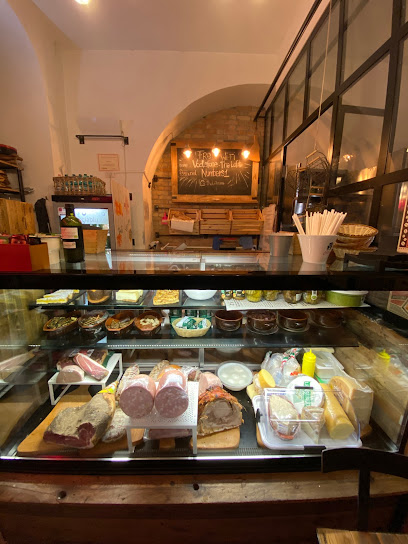
L'Angoletto ai Musei
Experience authentic Italian cuisine at L'Angoletto ai Musei in Rome - where every dish tells a story.
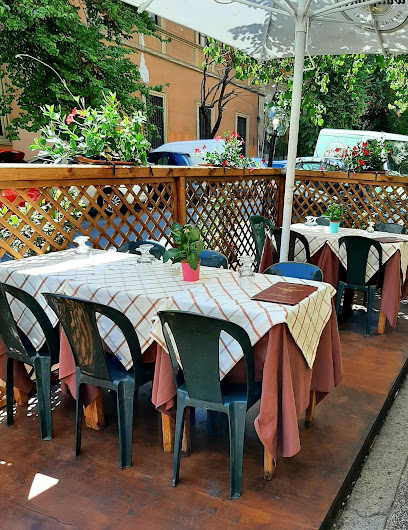
Bottega Vittoria
Discover authentic Italian flavors at Bottega Vittoria - where culinary tradition meets modern dining in the heart of Rome.
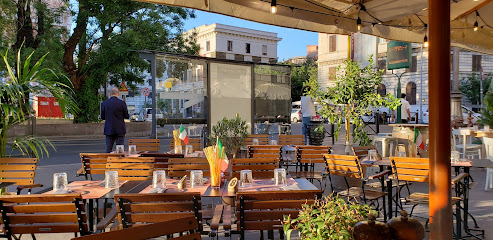
Ristorante Trattoria Da Marcella
Experience authentic Italian flavors at Ristorante Trattoria Da Marcella in Rome – where every meal tells a story.
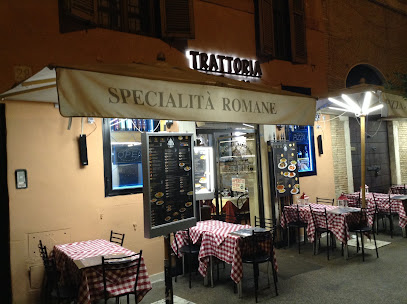
Markets, malls and hidden boutiques
Old Bridge Gelateria
Discover the irresistible flavors of Italy at Old Bridge Gelateria, a beloved spot for authentic gelato in the heart of Rome.
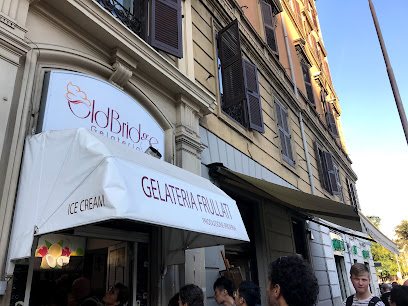
Gardens of Vatican City
Explore the exquisite Gardens of Vatican City, a peaceful haven filled with rich history and stunning landscapes in the heart of Rome.
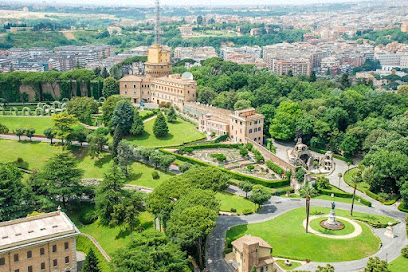
Gelateria Millennium
Discover the sweet taste of Italy at Gelateria Millennium, renowned for its artisanal gelato and delightful desserts in the heart of Rome.
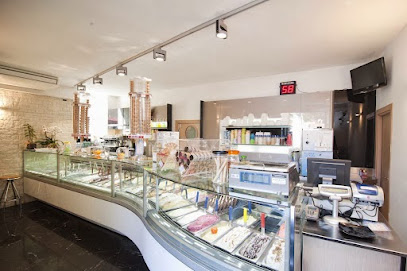
Murano Max Murano Glass Rome
Explore the art of Murano glass at Murano Max, a premier souvenir store in Rome offering exquisite handcrafted treasures.
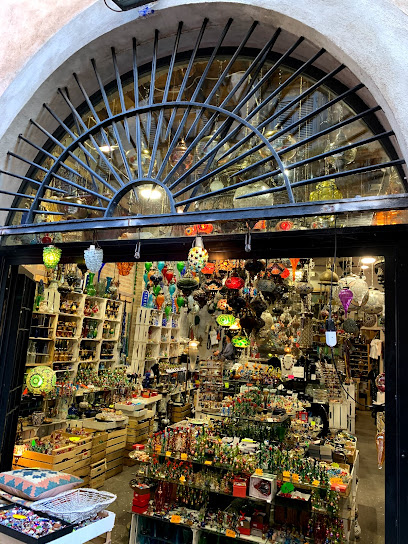
Flying Tiger Copenhagen
Explore the colorful world of Flying Tiger Copenhagen in Rome, where unique gifts and playful home goods await every curious traveler.
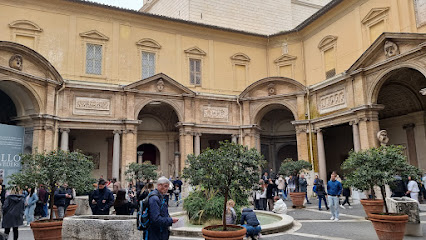
Castroni
Discover Castroni in Rome, a gourmet grocery store offering a rich selection of local delicacies, fine foods, and imported gourmet items.
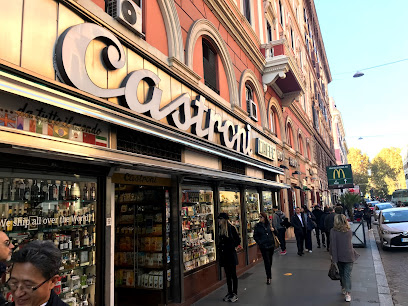
Bottega Vittoria
Discover Bottega Vittoria in Rome, where authentic Italian cuisine meets a cozy atmosphere and delightful pastries.
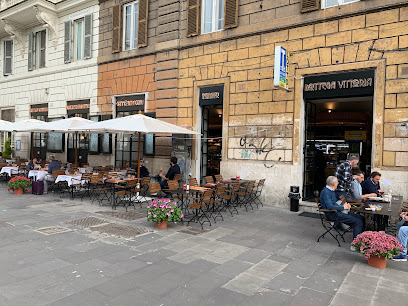
Foot Locker
Discover the latest in sportswear and footwear fashion at Foot Locker in Rome, where style meets comfort amidst historic charm.
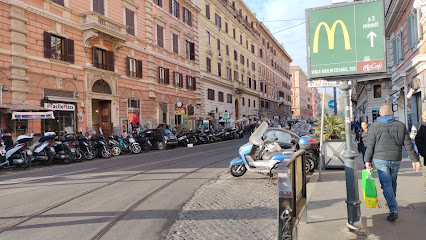
Vatican Pharmacy
Explore Vatican Pharmacy: where health meets heritage in the heart of Vatican City, offering unique souvenirs and wellness products.
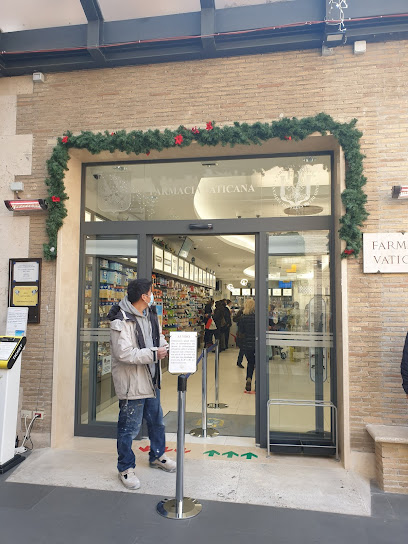
Annona Vatican City
Discover the delights of Italian cuisine at Annona Vatican City, a grocery store offering local produce and gourmet treats in the heart of Vatican City.
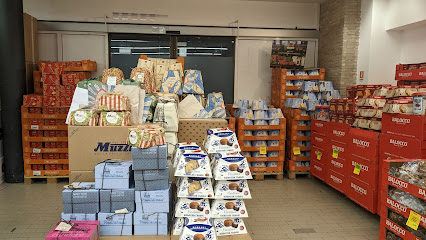
Savelli Religious (Savelli Art and Tradition)
Discover the essence of Italian craftsmanship at Savelli Religious, your destination for unique religious goods, jewelry, and heartfelt gifts in Rome.
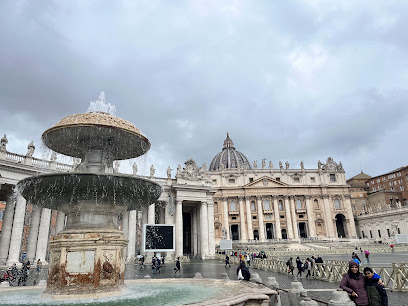
Gallery of Maps
Discover the artistic treasure of the Gallery of Maps in Vatican City, where history and artistry converge in stunning frescoes and intricate cartography.
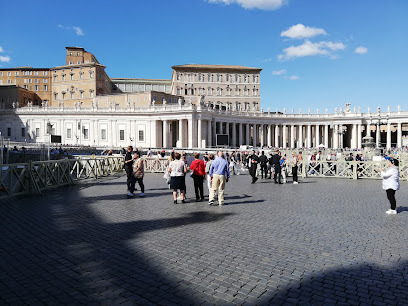
St. Peter's Gallery
Discover a unique blend of souvenirs, gifts, and delightful coffee at St. Peter's Gallery, a perfect stop for every traveler in Rome.
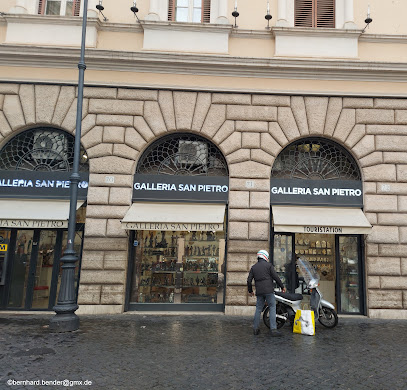
Mondo Cattolico
Discover a treasure trove of spiritual artifacts and unique souvenirs at Mondo Cattolico in Vatican City, perfect for every traveler seeking meaning.
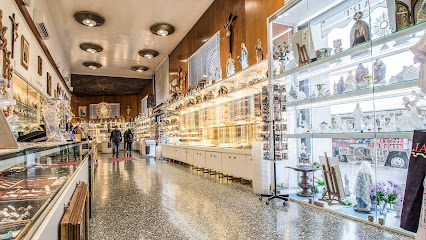
Vatican Emporium - Religious Articles & Gifts
Explore the Vatican Emporium for unique religious articles and gifts, a perfect blend of spirituality and artistry in the heart of Rome.
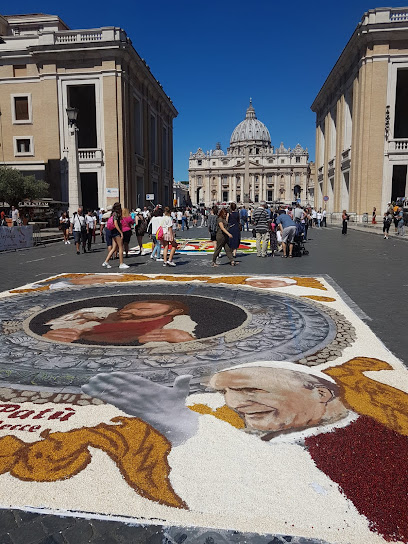
Essential bars & hidden hideouts
Caffè Delle Commari
Discover the flavors of Italy at Caffè Delle Commari, a charming café and cocktail bar in the heart of Rome, perfect for every moment of your day.
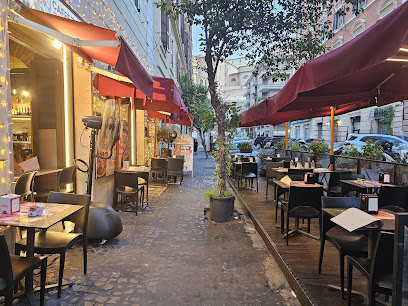
Be.Re. + Trapizzino
Discover the unique flavors of Be.Re. + Trapizzino in Rome, where traditional Italian cuisine meets a modern gastropub experience.
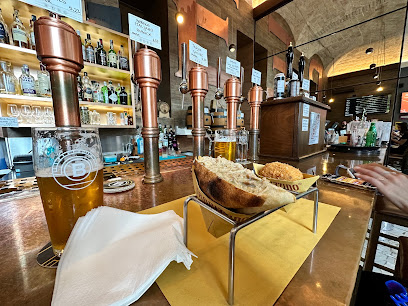
Wine Bar De' Penitenzieri
Experience the authentic flavors of Italy at Wine Bar De' Penitenzieri, where exquisite wines meet a cozy atmosphere in the heart of Rome.
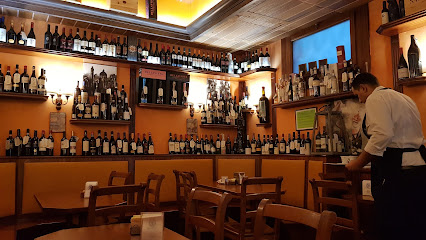
Caffè Vaticano
Experience authentic Italian coffee at Caffè Vaticano, the perfect spot for tourists near the Vatican.
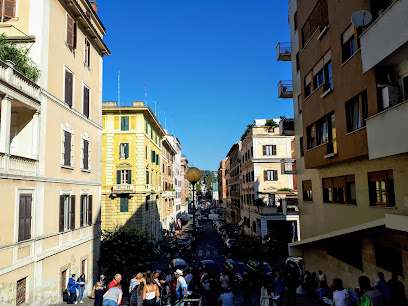
Cafe San Pietro
Experience the charm of Rome at Cafe San Pietro, your go-to spot for delightful coffee and authentic Italian pastries near Vatican City.
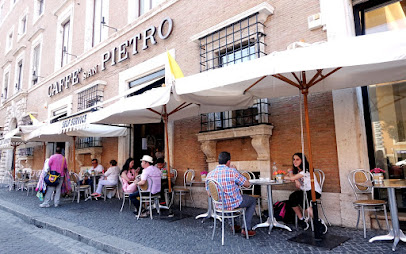
Bukowski's Bar
Discover Bukowski's Bar: A cozy bistro in Rome offering exquisite wines and delicious local dishes in a warm, inviting atmosphere.
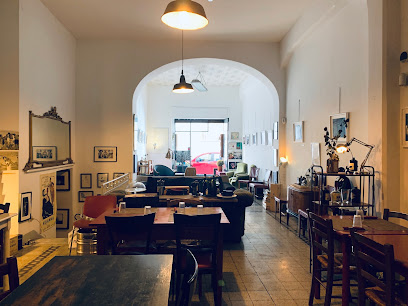
Saxophone Live Pub
Experience the vibrant nightlife and live music at Saxophone Live Pub, a must-visit spot for music lovers in the heart of Rome.
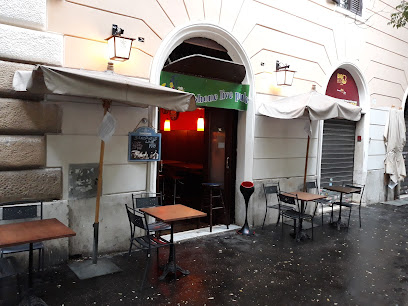
Birreria Martini Esperienza Tedesca
Experience authentic German cuisine and lively atmosphere at Birreria Martini, a premier beer hall in Rome that brings a taste of Germany to the Eternal City.
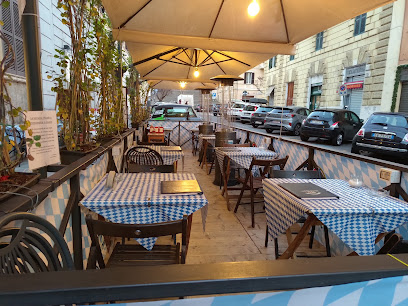
Giuly's Café
Discover the authentic taste of Italy at Giuly's Café, a charming bar and restaurant in the heart of Rome, serving delightful coffees and delicious Italian cuisine.
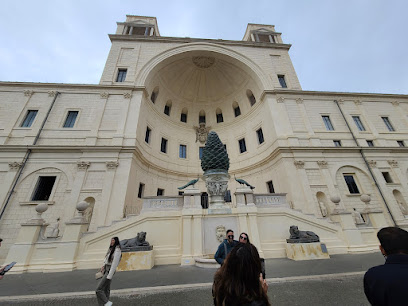
Bar Latteria Giuliani
Experience the essence of Roman hospitality at Bar Latteria Giuliani, a charming bar with delightful local flavors and warm ambiance.
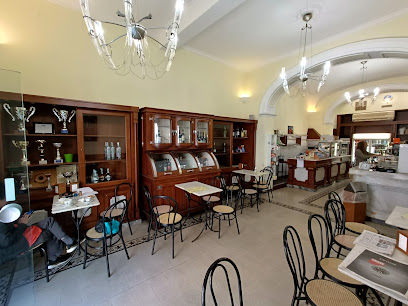
Derry Rock Pub
Experience the lively atmosphere and authentic Irish spirit at Derry Rock Pub, a must-visit in Rome for music and cocktail enthusiasts.
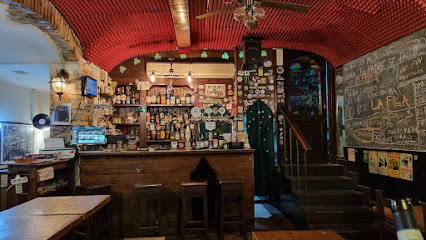
Caffè Leonina
Experience the charm of Italian coffee culture at Caffè Leonina, a cozy bar nestled in the heart of Rome's historic streets.
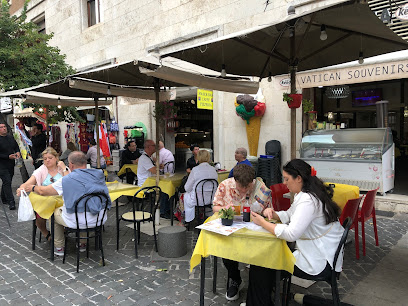
Roof Garden & Bar
Experience the elegance of the Roof Garden & Bar, where stunning views of Rome meet exquisite cocktails in a perfect atmosphere for relaxation.
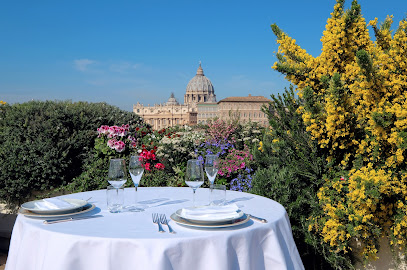
McQueen Food&Drink
Experience the vibrant atmosphere and exquisite culinary offerings at McQueen Food&Drink, a premier gastropub in Rome.
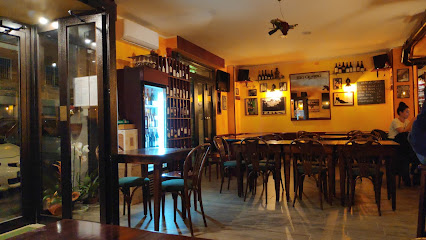
Bar Delle Grazie
Experience the heart of Rome at Bar Delle Grazie, where authentic Italian coffee and pastries meet a warm and inviting atmosphere.
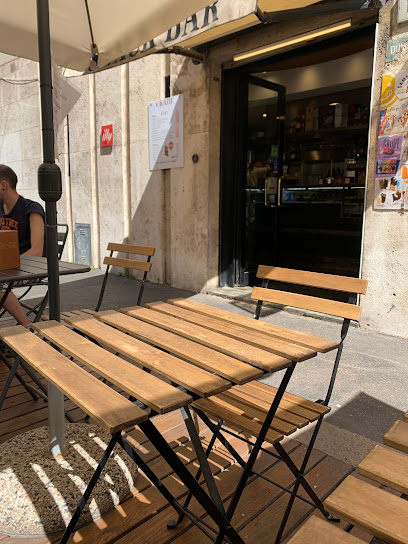
Travel experiences inspired by this city
Explore more travel diariesLocal Phrases
-
- HelloCiao
[chow] - GoodbyeArrivederci
[ah-ree-veh-dehr-chee] - YesSì
[see] - NoNo
[noh] - Please/You're welcomePer favore
[pair fah-voh-reh] - Thank youGrazie
[grah-tsyeh] - Excuse me/SorryMi scusi
[mee skoo-zee] - How are you?Come stai?
[koh-meh stah-ee] - Fine. And you?Bene. E tu?
[beh-neh. eh too?] - Do you speak English?Parli inglese?
[pahr-lee een-gleh-zeh] - I don't understandNon capisco
[nohn kah-pee-skoh]
- HelloCiao
-
- I'd like to see the menu, pleaseVorrei vedere il menu, per favore
[vohr-reh-ee veh-deh-reh eel mae-noo, pair fah-voh-reh] - I don't eat meatNon mangio carne
[nohn mahn-joh kahr-neh] - Cheers!Salute!
[sah-loo-teh] - I would like to pay, pleaseVorrei pagare, per favore
[vohr-reh-ee pah-gah-reh, pair fah-voh-reh]
- I'd like to see the menu, pleaseVorrei vedere il menu, per favore
-
- Help!Aiuto!
[ah-yoo-toh] - Go away!Vattene!
[vah-teh-neh] - Call the Police!Chiamate la polizia!
[kyah-mah-teh lah poh-lee-tsya] - Call a doctor!Chiamate un dottore!
[kyah-mah-teh oon doht-toh-reh] - I'm lostMi sono perso
[mee soh-noh pehr-soh] - I'm illSono malato
[soh-noh mah-lah-toh]
- Help!Aiuto!
-
- I'd like to buy...Vorrei comprare...
[vohr-reh-ee kohm-prah-reh] - I'm just lookingSto solo guardando
[stoh soh-loh gwar-dahn-doh] - How much is it?Quanto costa?
[kwahn-toh koh-stah] - That's too expensiveÈ troppo caro
[eh troh-poh kah-roh] - Can you lower the price?Puoi abbassare il prezzo?
[pwah-ee ahb-bahs-sah-reh eel preht-soh]
- I'd like to buy...Vorrei comprare...
-
- What time is it?Che ora è?
[keh oh-rah eh] - It's one o'clockÈ l'una
[eh loo-nah] - Half past (10)Sono le dieci e mezza
[soh-noh leh dyeh-chee eh meh-tsah] - MorningMattina
[maht-tee-nah] - AfternoonPomeriggio
[poh-meh-reed-joh] - EveningSera
[seh-rah] - YesterdayIeri
[yeh-ree] - TodayOggi
[oh-jee] - TomorrowDomani
[doh-mah-nee] - 1Uno
[oo-noh] - 2Due
[doo-eh] - 3Tre
[treh] - 4Quattro
[kwah-troh] - 5Cinque
[cheen-kweh] - 6Sei
[say] - 7Sette
[seht-teh] - 8Otto
[oh-toh] - 9Nove
[noh-veh] - 10Dieci
[dyeh-chee]
- What time is it?Che ora è?
-
- Where's a/the...?Dov'è...?
[doh-veh] - What's the address?Qual è l'indirizzo?
[kwahl eh leen-dee-ree-tsoh] - Can you show me (on the map)?Puoi mostrarmi (sulla mappa)?
[pwah-ee mohs-trahr-mee soo-lah mahp-pah] - When's the next (bus)?Quando passa il prossimo (autobus)?
[kwahn-doh pahs-sah eel prohs-see-moh ow-toh-boo-s] - A ticket (to ....)Un biglietto (per ....)
[oon beellyeh-toh pair]
- Where's a/the...?Dov'è...?
History of Vatican Gardens
-
The Vatican Gardens, also known as Giardini Vaticani, trace their origins back to the medieval era when orchards and vineyards were cultivated within the Vatican walls. The gardens were officially established in 1279 by Pope Nicholas III, who moved the papal residence from the Lateran Palace to the Vatican. He enclosed the area with walls and planted an orchard, a lawn, and a garden. These early developments laid the foundation for the lush and serene landscape seen today.
-
The Renaissance period marked a significant transformation for the Vatican Gardens. Under the patronage of Pope Julius II in the early 16th century, the gardens were redesigned with classical inspiration. Renowned artists and architects, including Donato Bramante, were commissioned to create elaborate garden designs. This era saw the construction of harmonious pathways, fountains, and sculptures, reflecting the artistic and cultural revival of the time.
-
During the Baroque period, under the papacy of Urban VIII and his successors, the Vatican Gardens saw further embellishments. Gian Lorenzo Bernini, the master of Baroque art, contributed to the garden's aesthetics by designing intricate fountains and statues. This era emphasized grandeur and ornate details, which are still visible in the garden's layout and features. The integration of art and nature reached new heights during this time, creating a visually stunning environment.
-
In the 19th century, several popes undertook extensive renovations to restore and enhance the Vatican Gardens. Pope Leo XIII initiated a series of improvements, including the addition of new plant species and the construction of the Lourdes Grotto in 1902, a replica of the famous grotto in Lourdes, France. These renovations aimed to preserve the historical elements while introducing new botanical and artistic features.
-
The Vatican Gardens continued to evolve in the 20th and 21st centuries, with a focus on preservation and sustainability. Pope Paul VI and his successors emphasized the importance of maintaining the gardens as a place of peace and reflection. Modern irrigation systems and environmentally friendly practices were implemented to ensure the garden's longevity. Today, the Vatican Gardens serve as a testament to centuries of artistic, cultural, and spiritual heritage, attracting visitors from around the world.
Vatican Gardens Essentials
-
The Vatican Gardens are located within Vatican City, an independent city-state enclaved within Rome, Italy. The closest airport is Leonardo da Vinci–Fiumicino Airport (FCO), about 30 kilometers away. From the airport, you can take a taxi, a shuttle bus, or a train to Termini Station in Rome. From Termini, take Metro Line A to Ottaviano-San Pietro station, which is a short walk to the Vatican City entrance. Alternatively, you can use a taxi or ride-share service for a direct route to the entrance.
-
Once you arrive in Rome, public transport options such as buses, trams, and the metro are convenient for getting around the city. The ATAC public transport system connects various parts of Rome to Vatican City. Taxis and ride-sharing services are also readily available. Keep in mind that the Vatican Gardens themselves require a guided tour, so you will need to book a tour in advance to explore the gardens.
-
The official currency in Vatican City is the Euro (EUR). Credit and debit cards are widely accepted in Vatican City and Rome, but it's a good idea to carry some cash for small purchases or in case of emergencies. ATMs are available near the Vatican Museums and around Rome.
-
Vatican City is generally very safe for tourists. However, be cautious of pickpockets in crowded areas such as St. Peter's Square and the surrounding neighborhoods in Rome. Avoid carrying large amounts of cash and keep your belongings secure. There are no specific high-crime areas targeting tourists, but standard travel precautions should always be taken.
-
In case of an emergency, dial 112 for immediate assistance. This number works for police, fire, and medical emergencies in Vatican City and Rome. The Vatican has its own small police force, the Gendarmerie, which can assist visitors. It is also recommended to have travel insurance that covers medical emergencies. There are several hospitals and pharmacies in Rome for medical needs.
-
Fashion: Do dress modestly, as Vatican Gardens are part of a religious site. Shoulders and knees should be covered. Avoid wearing overly casual or revealing clothing. Religion: Do respect the religious significance of the area. Keep noise levels down and avoid any disruptive behavior. Public Transport: Do validate your ticket before boarding buses or trams. Don’t eat or drink on public transport. Greetings: Do greet people politely; a simple 'Buongiorno' (Good day) or 'Ciao' (Hello) is appreciated. Eating & Drinking: Do try local Italian and Roman cuisines. Don’t refuse hospitality, as it can be considered impolite.
-
To experience Vatican Gardens like a local, consider booking a guided tour early in the morning to avoid the crowds. Enjoy the various themed gardens, fountains, and sculptures that reflect centuries of history. Don’t miss the opportunity to visit the Vatican Museums and St. Peter’s Basilica while you are in the area. Engage with local guides to gain deeper insights into the history and significance of the gardens.
Trending Landmark in Vatican Gardens
-
Vatican Museums
-
St. Peter's Basilica
-
Sistine Chapel
-
Saint Peter's Square
-
St. Peter Square Obelisk
-
Gardens of Vatican City
-
Chiesa di Sant'Anna dei Palafrenieri
-
Paul VI Hall
-
Apostolic Palace
-
Vatican Necropolis
-
Pine Courtyard
-
Crown Tours
-
Touristation Vaticano
-
Paintings Gallery of the Vatican Museums
-
Passeggiata del Gelsomino
Nearby Cities to Vatican Gardens
-
Things To Do in Vatican Pinacoteca
-
Things To Do in St. Peter's Basilica
-
Things To Do in Sistine Chapel
-
Things To Do in Vatican Necropolis
-
Things To Do in Vatican Museums
-
Things To Do in Gregorian Etruscan Museum
-
Things To Do in Apostolic Palace
-
Things To Do in St. Peter's Square
-
Things To Do in Rome
-
Things To Do in Orvieto
-
Things To Do in Assisi
-
Things To Do in Perugia
-
Things To Do in Montepulciano
-
Things To Do in Arezzo
-
Things To Do in Siena















